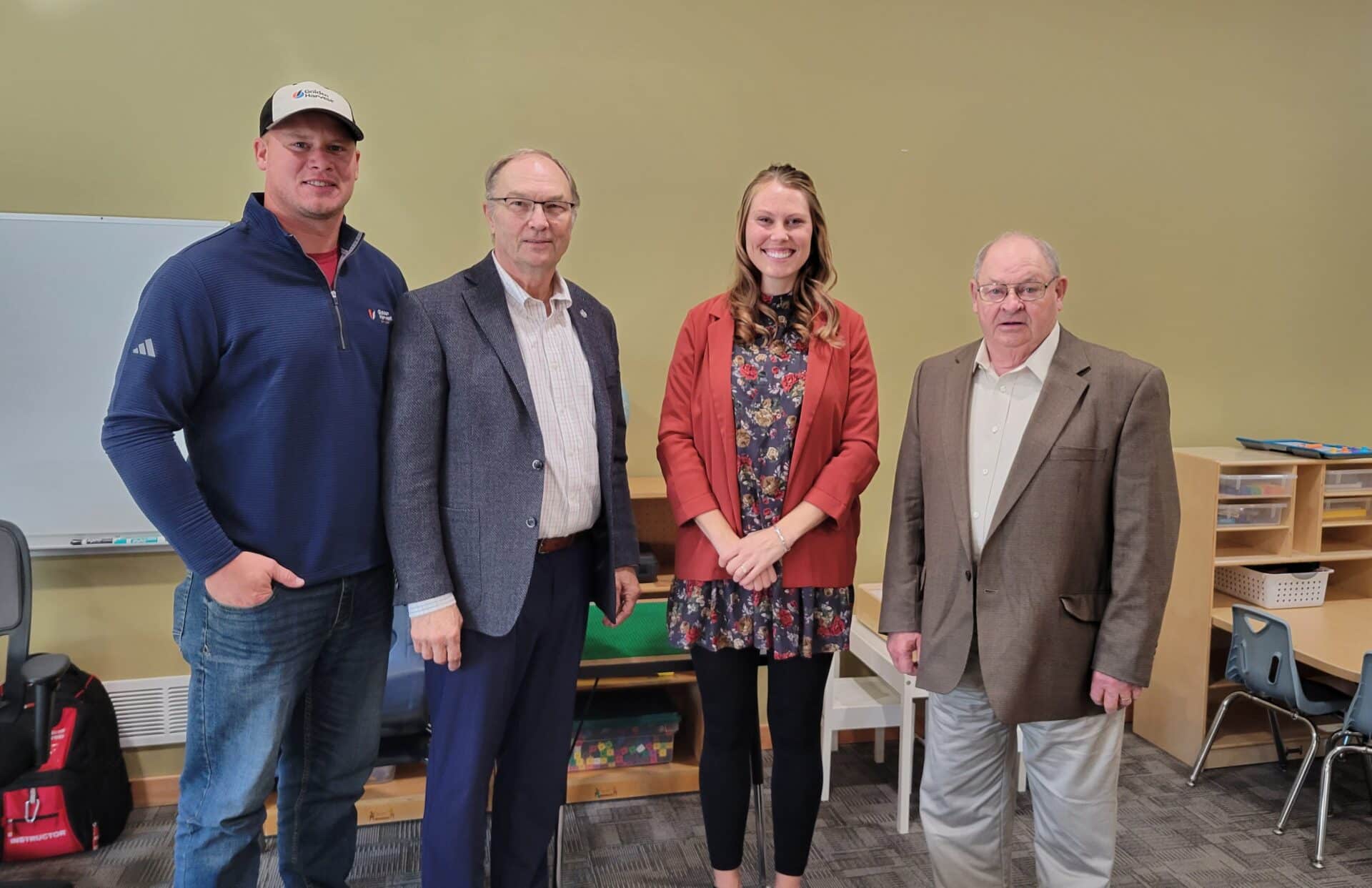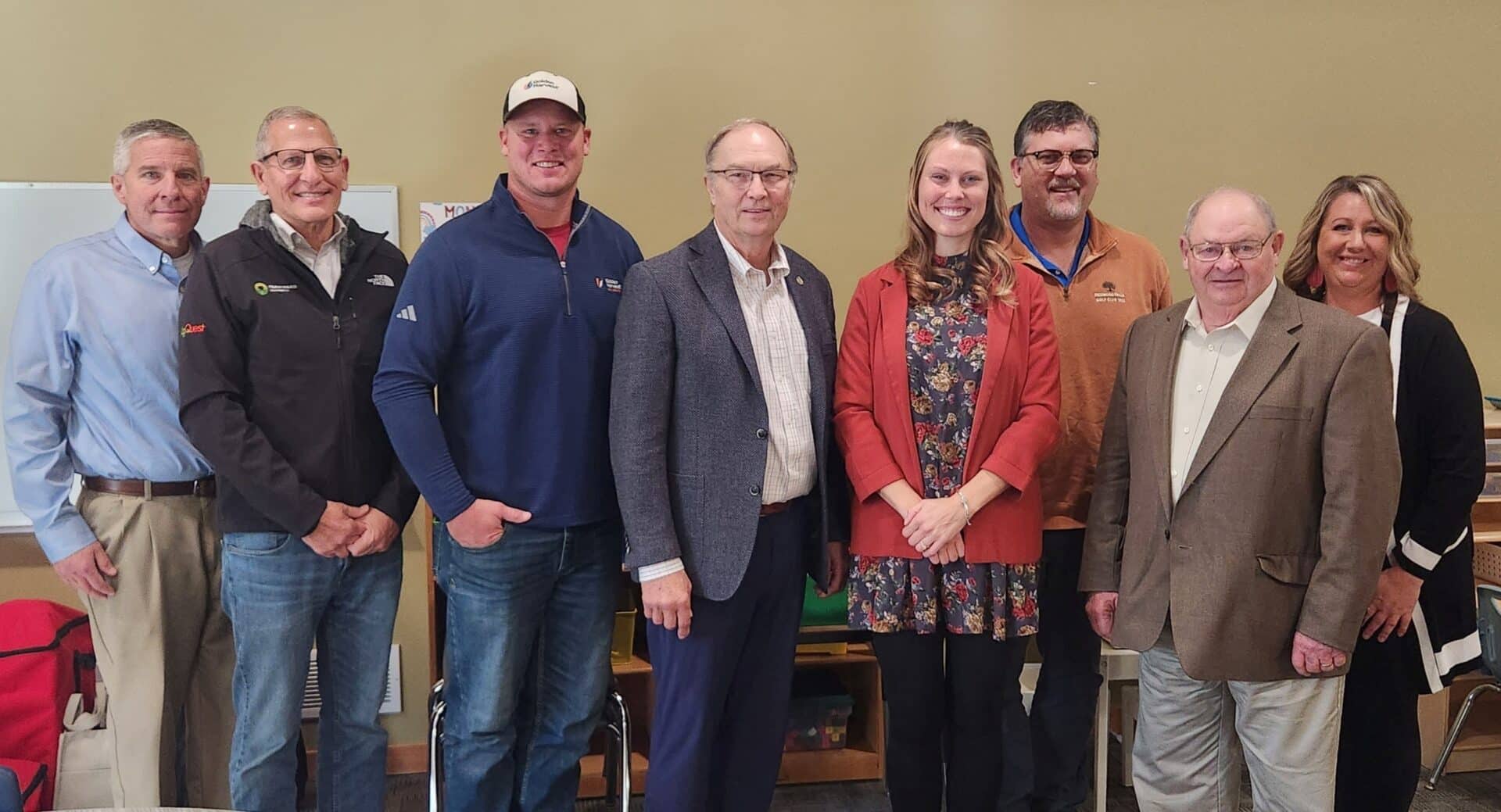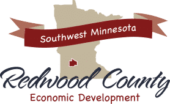
Aaron Harms, Representative Paul Torkelson, Snug as a Bug Childcare owner Maria Harms and Senator Gary Dahms.
On October 17, 2023 Senator Gary Dahms and Representative Paul Torkelson visited Maria Harms, owner of Snug as a Bug Childcare in Redwood Falls. The visit was arranged to follow Governor Tim Walz and Senator Amy Klobuchar’s visit in August, to showcase the business, and engage in meaningful dialogue around the State of Minnesota’s childcare licensing requirements. Representatives from the City of Redwood Falls and Redwood County Economic Development Authority were also in attendance.
During the visit, Maria outlined five main concerns she has experienced throughout her time in the industry and most recently in the development of her new facility, Snug as a Bug Childcare. The first concern discussed was the educational requirements for childcare center employees. Per Minnesota Rule 9503.0032 individuals working as a designated qualified teacher in a childcare center classroom, must hold a specific degree along with related credits and hours of experience. As such, this means someone with 20 years of experience working within the childcare field, but does not have the required education, couldn’t be hired as the designated teacher, despite their years of experience and demonstrated ability to fulfill the job requirements. This holds true for other degrees, such as nursing or doctorate programs, as well. If one doesn’t have the required and approved training and education for the early childhood field, they couldn’t be hired as a teacher within a childcare center. In today’s tight labor market, recruiting individuals to fill job openings within the center is challenging, coupled with the stringent educational requirements produces even more challenge.
Maria also discussed the differences between the three childcare business models; in-home family childcare, certified center license exempt and child care centers. Each model is responsible for the safety and well-being of children in their care, but each have a different set of rules. While the list of differences is lengthy, one of the most glaring is a certified center can staff individuals 16 years of age or older with no additional requirements, while child care center employees are required to meet the educational and experience qualifications, and be at least 18 years of age.
Regulated ratio standards, low wages, and affordable tuition were also areas of discussion. Maria shared during the licensing process the number of children that can be cared for is determined based on the square footage of the specified space for age groups. The number of children then dictates the number of staff needed, the amount of tuition revenue, and thus influences the salary offered to employees. In the industry, there is an ongoing balance between enrollment, employee retention and pay rates. Eventually a limit is reached where the cost of care becomes too great for families and they withdraw from the workforce to care for their children.

City Administrator Keith Muetzel, City Councilmen Larry Arentson, Aaron Harms, Representative Paul Torkelson, Snug as a Bug Childcare owner Maria Harms, City Mayor Tom Quackenbush, Senator Gary Dahms and Economic Developer Briana Mumme.
The fourth topic was focused on the state implementing free preschool education. Aside from school-age children, preschool-age classrooms produce the needed profit margin to offset the losses within the infant and toddler age groups, created by regulated ratios. Offering free preschool pulls a revenue generating age group out of childcare businesses, to include family-based providers, creating an income deficit. To combat the deficit, providers are positioned to increase their tuition for infant and toddler age children, which in turn costs the families more money and lowers the number of children providers can care for. What begins to look like a positive change for the community, quickly shows the deficit it will create.
The final item of discussion was related to childcare subsidy programs, financing restrictions for startup businesses and food program eligibility. Accessing the necessary capital to start a business is challenging if there is not demonstrated income to support the debt. Even if an existing in-home provider would like to pursue the development of a new childcare facility, the income from the in-home childcare business would not substantiate enough to qualify for a loan large enough for the development. More often than not, communities exploring childcare solutions lean on subsidy programs to implement a project and/or support ongoing operations. Often these programs include specific requirements an applicant has to meet to qualify, including the state supported food programs. Certified childcare centers and in-home providers automatically qualify for the free and reduced lunch program, simply because of their license type. However childcare centers must meet a threshold percentage of enrolled families to qualify for free and reduced lunch program. These added requirements produce additional financial strain on the center operations, and the families in need of childcare services.
“Childcare providers and invested parties need to engage with MN Department of Human Services and legislative representatives to advocate for changes that could positively impact this crucial industry, as we are all affected by childcare in some capacity” said Maria Harms. “Each recommendation I have proposed is to ensure the security and safety of the children receiving care, while also bringing the rules and regulations to a more realistic level for the providers and ultimately for the families.”
Senator Dahms and Representative Torkelson offered constructive recommendations and an overview of processes to propose the recommendations Maria presented. While there is awareness to make changes at this level it will require strategy and support of additional partners. The group concluded a desire to identify next steps with industry leaders, regional organizations, and an ongoing partnership with the City of Redwood Falls and Redwood County EDA.
Snug as a Bug Childcare currently has openings for all age groups and is accepting applications for new enrollments. Those interested in learning more are encouraged to contact Maria at (507) 627-SNUG (7684), or by visiting the website at saabchildcare.com.
To learn more about the child care needs in the county, contact Briana Mumme, Redwood County Economic Development Coordinator at [email protected] or (507) 637-1122 and online.
